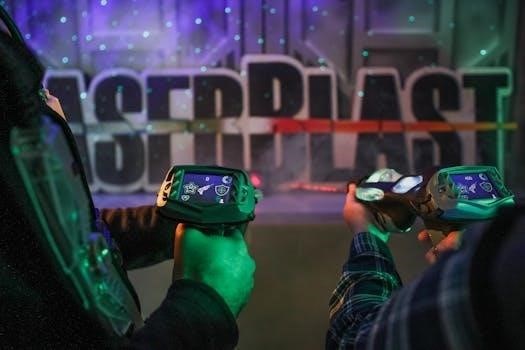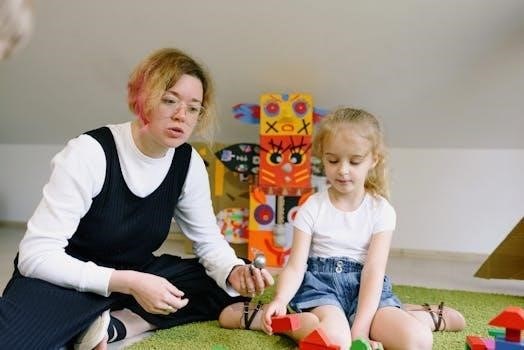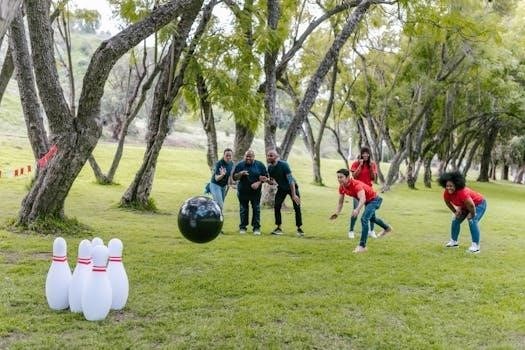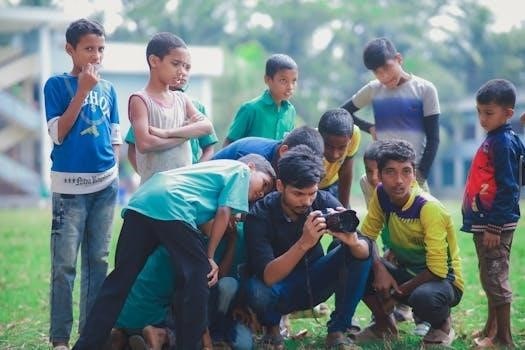social skills pdf
What are Social Skills?
Social skills are the behaviors we use to communicate and interact effectively with others. Social skills are essential for building relationships, navigating social situations, and achieving success both personally and professionally. These skills promote acceptance from peers and adults.

Benefits of Social Skills Training
Social skills training offers numerous benefits, improving overall well-being and interpersonal effectiveness. It helps individuals create positive interpersonal atmospheres and solve interpersonal problems. Social skills training enhances communication, boosts confidence, and strengthens relationships for personal and professional success.
Improved Communication
Effective communication is a cornerstone of social interaction, and social skills training significantly enhances this ability. Individuals learn to express themselves clearly, both verbally and nonverbally, ensuring their messages are accurately conveyed and understood. Improved communication fosters stronger connections, reduces misunderstandings, and promotes more meaningful exchanges.
Through targeted exercises and techniques, individuals develop active listening skills, enabling them to fully engage in conversations and comprehend others’ perspectives. They also learn to articulate their thoughts and feelings in a respectful and constructive manner, fostering open dialogue and mutual understanding.
Furthermore, social skills training equips individuals with the ability to adapt their communication style to different audiences and situations, ensuring their message resonates effectively. This adaptability is crucial for navigating diverse social settings and building rapport with a wide range of individuals, ultimately leading to more successful interactions and stronger relationships.
Enhanced Relationships
Social skills training plays a pivotal role in enhancing relationships by equipping individuals with the tools to build and maintain meaningful connections. By improving communication, empathy, and conflict resolution skills, individuals can foster stronger bonds with family, friends, and colleagues.
Learning to understand and respond to others’ emotions allows for deeper connections and increased trust. Furthermore, social skills training teaches individuals how to navigate challenging conversations and resolve conflicts constructively, preventing misunderstandings from escalating into damaging disputes. These skills are essential for maintaining healthy and fulfilling relationships.
Individuals become more adept at expressing their needs and boundaries, ensuring their relationships are built on mutual respect and understanding. Ultimately, enhanced relationships contribute to increased happiness, well-being, and a stronger sense of belonging, enriching various aspects of life and providing a supportive network.
Increased Confidence
Social skills training significantly boosts self-confidence by providing individuals with the tools and strategies needed to navigate social situations successfully. As individuals learn to communicate effectively, assert their needs, and manage conflicts constructively, they gain a greater sense of control and competence in social interactions.
This newfound competence translates into increased self-assurance and a willingness to engage in social activities. Successfully navigating challenging social scenarios builds a positive feedback loop, reinforcing their abilities and further enhancing their self-esteem. Improved social skills reduce anxiety and fear associated with social situations, allowing individuals to approach interactions with greater ease and confidence.
Individuals are more likely to take on new challenges and pursue opportunities they may have previously avoided. This increased confidence extends beyond social settings, positively impacting various areas of life, including academic, professional, and personal pursuits, leading to greater overall well-being and success.

Social Skills Training for Children
Social skills training for children focuses on developing core competencies like participation, communication, and cooperation. It promotes emotional understanding, empathy, and effective coping with social stressors. Early intervention through training is crucial for children’s social development.
Core Social Skills
Core social skills are fundamental abilities that enable positive interactions and relationships. These skills include initiating conversations, maintaining eye contact, active listening, and understanding non-verbal cues. Cooperation, sharing, and taking turns are also essential components. Conflict resolution, good sportsmanship, and expressing emotions appropriately are vital.
Furthermore, understanding personal space, respecting boundaries, and demonstrating empathy contribute to successful social interactions. Teaching these skills involves direct instruction, modeling, and role-playing. Reinforcement and consistent practice help children internalize these behaviors. Visual cues and prompting can also support skill acquisition.
Mastering core social skills equips children to navigate various social situations confidently and build meaningful connections. They facilitate positive peer relationships and enhance overall well-being. Addressing deficits in these areas is essential for supporting children with social difficulties or autism spectrum disorder.
Emotional Understanding and Empathy
Emotional understanding involves recognizing and interpreting one’s own emotions and those of others. Empathy builds upon this by enabling individuals to share and understand the feelings of another person. These skills are crucial for fostering positive relationships and navigating social interactions effectively.
Developing emotional understanding and empathy requires explicit instruction and experiential learning. Activities such as identifying emotions in faces, discussing feelings in literature, and role-playing scenarios can enhance these skills. Encouraging children to consider different perspectives and understand the impact of their actions on others is also vital.
Furthermore, teaching self-regulation strategies helps children manage their own emotions and respond appropriately to others. By promoting emotional literacy and empathy, we empower children to build stronger connections and navigate complex social situations with greater confidence and compassion.

Social Skills Training for Adolescents
Social skills training for adolescents focuses on developing advanced social competencies. These skills help navigate complex peer relationships and prepare for adult life. It addresses communication, cooperation, and conflict resolution strategies crucial for teenagers.
PEERS Curriculum for Adolescents with ASD
The Program for the Education and Enrichment of Relational Skills (PEERS) curriculum is specifically designed for adolescents with Autism Spectrum Disorder (ASD). This evidence-based social skills training program focuses on teaching crucial social competencies necessary for making and maintaining friendships. It is used with teens to assist them in making and keeping friends.
PEERS utilizes a structured approach, incorporating direct instruction, role-playing, and homework assignments to facilitate learning and generalization of social skills. The curriculum addresses key areas such as conversational skills, understanding social cues, handling conflicts, and managing bullying situations. Parents are actively involved, providing coaching and support to reinforce the learned skills at home.
Research has demonstrated the effectiveness of PEERS in improving social interaction and reducing social isolation among adolescents with ASD. The program’s emphasis on practical application and real-world scenarios makes it a valuable resource for promoting social competence.

Social Skills Training Techniques
Social skills training employs various techniques to improve an individual’s ability to interact effectively. These techniques include direct instruction, role-playing, and video modeling, each designed to target specific social competencies and promote generalization of skills.
Direct Instruction
Direct instruction is a training technique that involves explicitly teaching social skills through a structured and systematic approach. This method often includes breaking down complex skills into smaller, manageable steps. It is commonly used to help individuals, especially those with social difficulties or challenges, acquire and improve their social skills.
Typically, direct instruction involves a trainer or therapist explaining the skill, providing examples, and demonstrating how to perform the skill correctly. The learner then practices the skill, receiving feedback and reinforcement from the trainer. This process ensures a clear understanding and proper execution of the social skill;
Make sure main points for the rationale of the skill are addressed. Give out the skill sheets with the steps of the skill and ensure the skill title and steps are visible.
Role-Playing
Role–playing is a dynamic and interactive social skills training technique where participants act out different social situations to practice and improve their skills. This method allows individuals to experience real-life scenarios in a safe and controlled environment, fostering confidence and competence.
During role–playing, participants take on specific roles and engage in simulated conversations or interactions. This practice helps them apply newly learned social skills, such as active listening, assertive communication, and conflict resolution. The trainer provides guidance and feedback, helping participants refine their approach and develop effective strategies.
Role play helps to clarify and compare the influence of social competence. This experiential learning allows individuals to generalize skills from in-session to the real world, therapy becomes more effective.
Video Modeling
Video modeling is a powerful social skills training technique that utilizes video demonstrations to teach and reinforce desired behaviors. This method involves watching videos of individuals successfully performing specific social skills, providing learners with clear and visual examples to emulate.
The videos often feature peers or adults engaging in positive interactions, showcasing appropriate communication, problem-solving, and emotional regulation skills. Learners observe the models’ actions, body language, and verbal cues, which helps them understand and internalize the desired behaviors.
After watching the videos, learners have opportunities to practice the skills themselves, often through role–playing or real-life situations. Video modeling is particularly effective for individuals with autism spectrum disorder (ASD) and other social challenges, as it provides a structured and predictable learning experience.
